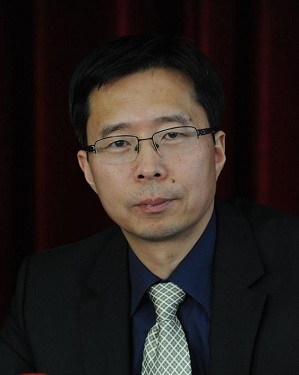Sandwiched: France’s dilemma between China and US
This year marks the 60th anniversary of the establishment of diplomatic relations between China and France. Although the US-China competition has become the main line of the international community, France still shares the best and most strategic relations with China in the Western camp. It is not difficult to see that the most important factor affecting Sino-French relations is the United States, so it is very necessary to study the special characteristics of Franco-American relations and their impact on China.
The specificity of Franco-American relations is mainly reflected in the fact that both sides have conflicting strategic interests, but maintain the appearance of strategic allies anyways.
The conflict of strategic interests between France and the United States began when the United States became the hegemon after World War II. During the Cold War, the United States strongly opposed and obstructed the establishment of diplomatic relations between China and France, and opposed the close diplomatic relations between France and the Soviet Union. After entering the 21st century, France has repeatedly said no to the United States. For instance, President Macron openly refused the US’ anti-Chinese narrative, emphasized that France will not be decoupled from China, Taiwan is not a European issue, and opposed to the expansion of NATO to Asia.
Vice versa, the US is also consistent in its prevention and suppression of France. For example, it banned the transfer of nuclear technology to France during the Cold War, intervened in the Lebanese civil war in 1958 without France, and supported the independence of Algeria.
Now, the US is fully committed to containing China, but it also remains tough on France. Not only did it not allow France to join organizations such as AUKUS, but it also nullified France’s chancing of playing the “Russia card” through the Russia-Ukraine conflict, which greatly undermined France’s dominant strategic autonomy. It also created a series of bills to undermine the re-industrialization of France and Europe. As for snatching the submarine orders from France and Australia, it is a direct target on France’s military capability as an independent power.
But on the other hand, France and the US still have to show in public that they are allies – which is what makes Franco-American relations so special. For example, since Macron became president, he has made state visits under both Trump and Biden. John Kirby, spokesman for the White House National Security Council, claimed that Biden “feels that France is really the most important country” that can enjoy two state visits at the highest level. France itself proudly claimed that “this is an honor for France and not for any other European country.”
First of all, from the perspective of national strategic interests, France and the United States are not really allies, but there are major strategic contradictions.
Between the big powers, forming strategic alliances have two preconditions: first, the two sides have neither security conflicts nor major strategic interests on the opposition. For example, Germany, after its unification in the nineteenth century, has been a threat to the national security of France until the end of WWII.
Second, the two sides must share major strategic interests, otherwise they may not become allies even if there is no security conflict. For example, Germany and Japan, which were strategic allies during World War II, are now only friendly countries because each has no strategic value to the other.
Franco-American relations are also governed by these two conditions.
During WWI, France and the US were strategic allies. But after World War II, the global position of France and the United States changed completely, leading not only to the disappearance of their common strategic interests, but also to growing antagonism.
Defeat in World War II reduced France from a world power to a second-rate country, so its highest national interest was to regain its original status as a great power. The United States, on the other hand, had become a world hegemon from a regional power, and its supreme national interest was to maintain this status. To this end, the US wanted to contain the USSR on the one hand, and to unify the Western countries under its command on the other. The United States controlled Germany and Japan through military occupation, and most of the countries of Western Europe through Marshall Aid and the establishment of NATO.
This unequal relationship between the US and its allies has remained unchanged to this day. As French scholar Maxime Lefebvre points out, “The US-European relationship is an asymmetrical one in which the EU is vulnerable rather than equal. When you are the weaker ally, what can be done is not going to be co-decision making, only following. This is the natural and historical law of power.”
He also quoted American historian Robert Kagan’s assessment of the US-EU power gap during the Bush administration to insinuate the current state of US-EU relations: “Americans are from Mars and are the strong side, Europeans are from Venus and are the weak side; the Americans are responsible for ‘cooking’ (launching military operations, conducting political negotiations), the Europeans are responsible for ‘washing the dishes’ (financing reconstruction, dropping off weapons, sending troops for peacekeeping, etc.).”
If France wanted to regain its status as a great power, it had to get rid of US control; if the US wanted to unify the West, it had to keep France firmly under control – the national strategic interests of the two sides could be said to be the opposite of each other. Throughout the Cold War, even though on the surface France was still a member of the West, it was a country that repeatedly challenged the strategic interests of the United States. This was highlighted in three ways:
First, it withdrew from NATO, took back the command of the French Mediterranean fleet and aircraft squadrons, refused to stockpile United States nuclear weapons on its own territory, and developed nuclear weapons on its own under the United States blockade.

The second was to be the first Western power to establish ambassadorial-level diplomatic relations with China, despite strong opposition from the United States.

Third, it established close cooperation between France and the Soviet Union. de Gaulle became the first Western leader to visit the Soviet Union in 1966, the same year that France withdrew from NATO. France was also the first Western country to cooperate with the Soviet Union in the field of aviation, and the only Western country to refuse to condemn and sanction the Soviet invasion of Afghanistan.

It is also very noteworthy that France’s nuclear forces were directed against the United States. In the 1980s, one of the architects of France’s strategic nuclear deterrent, General Pierre-Marie Garouet, revealed that France’s strategic nuclear forces were designed to deter attacks against France on all fronts, including from the United States.
France’s approach greatly enhanced its international standing: at a time when US, USSR and China were confronting each other, France befriended all of them, thus becoming the only country at the time that could communicate directly with any of the major powers, and playing an important role that no one could replace in the new great game. Later, when the United States sought to restore relations with China, it also had to turn to France. It can be said that the bipolar world is best suited to a medium-sized country like France, which can maneuver around all sides with ease and maximize its national interests. This, of course, seriously undermines the strategic interests of the United States.
So what is the state of Franco-American relations today?
First look at the global context. With the rise of China and developing countries, the pattern of the United States dominating the world order is changing. China and the United States are far more powerful than any other country, both economically and militarily. Although China, unlike the Western powers of the past, neither expands nor exports its own model, China’s success objectively negates the uniqueness of the US model. Even if only from the economic point of view, when China becomes the world’s largest economy, the yuan will sooner or later become a global currency, posing a challenge to the hegemony of the US dollar, the US naturally can not accept the rise of China.
Secondly for France, the end of the Cold War led to a serious decline in its national status: not only did it lose the Soviet Union and China cards, but Germany also gained unification, and the European Union was enlarged, resulted in France’s power and weight in the EU being diluted. In addition, after thirty years of glory, France’s economic growth was slowing down, and in the relative decline of its national power, it needed to draw even more on the external environment. At this time, the relationship between France and the United States has become neither a major conflict of interest, nor a major common interests of the state, in fact, the two sides are dispensable.
However, as de Gaulle’s once said “France is not France if it is not great,” France never gives up any opportunity to become a great power.
Nowadays, with the rapid rise of China, the global landscape is in transition, and the opportunity for France has come again. That is why, in 2010, three years after China became the world’s second-largest economy, the European Union finally formalized its strategic autonomy, after a long and persistent push by France.
For France and the United States, today is in a way a replica of the Cold War: France wants to take advantage of the unprecedented changes to pursue great-power status, while the United States wants to unify the West against China – once again a major clash of national strategic interests. That’s why President Macron, on his visit to China this year, made it clear that he would not decouple from China, and that Taiwan is not a European issue. The US recognizes that the trip has weakened its containment efforts against China.
Of course, the US, which has already learned the lessons of the Cold War, has also made a preemptive move against France: a Russia-Ukraine conflict has deprived France of the Russia card, and it will never again be able to play both the Soviet and the Chinese cards at the same time, as it did during the Cold War. Thus, from interests to actions, it proves that underneath the surface of the Franco-American alliance, strategic confrontation is on the inside.
What is special about Franco-American relations is that despite the strategic confrontation being the inside, France and the United States still have to maintain the appearance of an ally on the surface, and also often deliberately show the special relationship between France and the United States. There are two main explanations for this in French academia: first, historical feelings and second, shared values.
The so-called historical affection refers to several life-and-death relationships between France and the United States: France sent an expeditionary force to support the American War of Independence, the United States helped Europe defeat Germany in World War I, and liberated France in World War II. But not to mention the fact that France and the United States both acted in their own interests, if we want to talk about historical affection, so did the United States and Russia: Russia refused the King of England’s request to send troops to suppress the American Revolution, was the only European country to support Lincoln’s government in the Civil War, and was an ally in World War I and World War II. But what is the relationship between the US and Russia now?
The so-called shared values are even more untenable, when France sent the Expeditionary Force, it was the opposite of the United States in terms of values. In World War I and World War II, the opposing sides were not divided into friends and foes on the basis of values. By Western standards, Russia’s most democratic and pro-Western period was the Yeltsin era, but NATO’s eastward expansion began when he was in charge. What does the establishment of diplomatic relations between China and France, and the proximity and establishment of diplomatic relations between China and the United States have to do with the values of the two sides?
In the final analysis, it is still national interests that take the call. First, the United States has a strategic interest in France. There are many factors that support France’s status as a great power, such as comprehensive national power and French-speaking Africa, but the reason why France has been able to conduct balanced diplomacy in the US-Soviet Cold War and today’s bipolar world of the US and China is closely related to its status as a Western country. Or rather, the reason why the Soviet Union and China valued France was that it was an important member of the West. Its position could not only have an impact on the West as a whole, but could also be a breakthrough for China and the Soviet Union to break the united Western front. For example, six countries established diplomatic relations with China in the same year that Sino-French diplomatic relations were established, and many more have made breakthroughs in their relations with China, and even within the United States, there have been voices of rethinking their relations with China.
But if France really breaks away from the US-dominated Western camp, it will only be a pole of medium weight. That is to say, France can only be attractive to other forces and offer the highest price to them if it is based on the US-dominated Western camp. In terms of the principle of strength, this is France’s fundamental position.
Second, there are conventional major gains.
After World War II the United States has been the world’s most powerful and most developed countries, if France and the United States showdown, not only will be retaliated against, but also lose the eligibility to share the United States of all kinds of resources, which France is still very sober. What’s more, its so-called balanced diplomacy is to benefit all parties, not to depend on a certain party, but on the contrary to make all parties need it.
For example, into the Nixon era, France’s balanced diplomacy has achieved great results: not only did the Soviet Union and China establish a special relationship with France, the United States also recognized the French’s unorthodox position . This was evident in the case of nuclear assistance. Although the Atomic Energy Act prohibited the sharing of nuclear technology between the United States and France at the time, the United States circumvented the law by inventing the “negative bootstrap” approach: French scientists would explain their thinking and practices to the United States, and the United States would point out whether they were right or wrong. Subsequently, the United States helped in the miniaturization of nuclear bombs, the prevention of radiation from nuclear tests, underground nuclear tests, navigation and power systems, and multiple-warhead guidance technology, which directly accelerated the development of France’s nuclear forces.
From the US point of view, whether it is the Cold War or today’s US-China game, it can not afford to lose France. What’s more, France is militarily independent, and when it engages in disarmament negotiations with the Soviet Union it excludes French military forces, but if the US and the Soviet Union were to come into direct conflict, France would certainly side with the United States. Plus losing France would also be the same as the USSR losing a window into the West, which in effect acted as a deterrent to Soviet adventures.
Besides the military, the most important thing was the economy. The US has been the number one investor in France, accumulating $106 billion in 2021. in 2023 France attracted 1,815 foreign investment projects, with the US topping the list with 305, and 4,600 US firms created 480,000 jobs in France.

The US is also a major investment destination for France, with French companies having invested a cumulative $326 billion in the US in 2021, and a total of 5,000 French firms have set up factories there.
In short, the United States is both one of the pillars on which France maintains its status as a global power and the only country that can undermine its sovereignty and independence. For this reason, France has to keep saying no to the United States on the one hand, while being unable to break away from the Western camp, given the presence of the Soviet Union or China. This is why, after the outbreak of the Russian-Ukrainian conflict, France had to give up Russia, which had a greater strategic value, in favor of the weaker Ukraine.
Overall, the structural elements of Franco-American relations will not change while the United States remains the global hegemon. France needs to both stay in the US-led Western camp and maximize its national interests by saying no to the US based on the strength of its rivals. This special relationship will change as the United States is overtaken or as America’s rivals disappear.
From China’s perspective, the strategic structural needs between France and China will remain until China overtakes the United States or until there is a showdown between the two sides. France has also been able to play a role in obstructing the United States in the Western camp, albeit out of its own national interest needs and not for the sake of China.
There are three main reasons for this. One is that the US-China game is far away from Europe, and Europe is relatively able to maintain a certain degree of neutrality. This is different from the Cold War, when Europe was the main battlefield, and this position allows France and Europe to simultaneously profit from both the Chinese and American powers. For example, China made huge concessions to the China-EU investment agreement, the United States to give up on the participation of European companies in the Nord Stream II sanctions are so.
Second, it is important to avoid France and Europe getting involved in a Sino-American conflict, which would be costly. In particular, the outbreak of the Russian-Ukrainian conflict caused Europe and France to lose Russia, which became the most important interests damaged, Europe and France can not afford to lose China again. So France advocates that Europe does not choose sides, it will not form a camp confrontation.
Third, by saying no to the United States, highlighting their independence and status as a great power. This “no” is not only a bargaining chip for the exchange of interests with China, but also a bargaining chip for the interests of the US Macron visited the US in December 2023 and hoped that the US would make concessions on energy prices and the Inflation Reduction Act, but the US refused. So in April 2023, during his visit to China, he openly said that he would not decouple from China, Taiwan is not a European issue, and directly “called out” the US, and forced US President Joe Biden to call and communicate with him. It is not known how many deals were made, but it is unlikely that it was just a phone call to exchange views.
But between China and France and France and the United States is a red line and bottom line, that is, China and the United States must not break the fight, otherwise France can only stand on the side of the United States. There are two specific indicators of fighting without breaking at the moment: first, no military aid to Ukraine, and second, no armed unification of Taiwan. Only within this space can the China-France and China-US triangle be maintained. Just as if there is no Russia-Ukraine conflict, France can always maintain close relations with Russia, even military security cooperation, such as selling weapons. But once war breaks out, France will have to side with the United States. In other words, when China does not have the strength to showdown with the US or does not have a showdown, France is one of China’s cards. Once there is a showdown, France becomes a force for the US to oppose China.
As for other issues such as human rights and economic friction, they are not the fundamental factors affecting the relationship between China and France.




